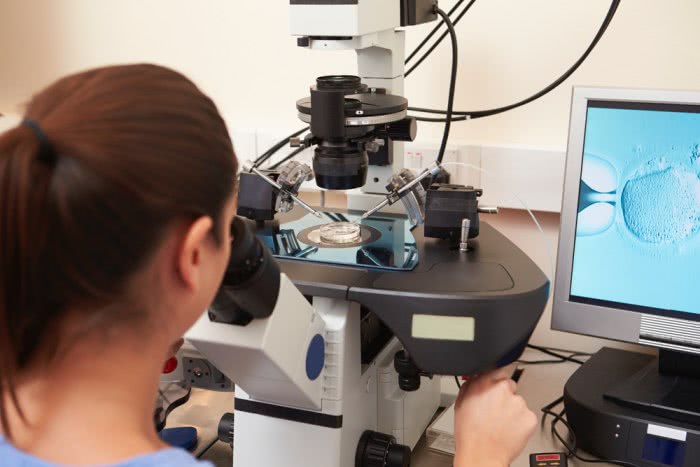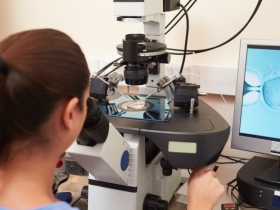What does the acronym IVF mean?
Nowadays up to 20 % of couples have a problem conceiving. This is due to many factors, such as greater age, physiological problems, excessive stress, or an unhealthy lifestyle. If a woman cannot get pregnant, even after a year of trying, it may be worth considering visiting an IVF centre. What exactly does IVF stand for and what awaits you at the clinic?
What does IVF mean?
These three letters stand for in vitro fertilisation – in other words, extracorporeal pregnancy (pregnancy that starts outside the body) – and it is one of the methods of assisted reproduction. For a better idea, and in layman's terms, you must have come across the term "test tube baby" in the past. But there is much more to the method than this. It is a very intimate and personal process that can be psychologically demanding for a couple. So it's good to know what you can prepare for, at least a little, in advance.
Success rate of IVF
The sooner a couple decides to act, the greater the chance of success. The age of the woman, i.e. the age of the eggs, plays a big role here. For women under 35, the success rate of IVF is less than 20 %, from 35 to 39 years less than 14 %, and over 40 years only 4 %. If a woman only plans to become pregnant later, it is advisable to be look into the egg freezing method and have her eggs frozen, as her eggs might not be sufficiently capable of fertilisation if she is older.

Course of IVF
The first and most important step is that the couple both agree that they want to seek the help of an expert. It is not an easy task and they should make this decision together through communication and mutual support. As soon as this happens, they contact the clinic via the contact form and arrange their first visit. This usually consists of consultation, getting to know each other and recommendation of the appropriate procedure. The couple will gather a lot of new information and should give themselves enough time to process it. They can expect to receive support from the clinic and will be able to contact it if they have any questions. Once they have made their decision to undergo IVF, the whole procedure can begin.
Both the man and the women have to undergo various examinations at the beginning. For women, it is usually a hormonal examination, in which menstrual or ovulatory disorders can be detected. The second important examination concerns the ovaries and the uterus, which is performed by ultrasound. They can also undergo genetic or immunological examinations, but this depends on the specific agreement with the doctor. Men undergo what is known as a spermiogram. Their sperm is examined in detail under a microscope and the appearance, number and motility of the sperm are analysed. They can also undergo testicular, prostate or genetic examinations, but, as with women, these examinations depend on agreement with and the recommendation of the doctor.
The next step is ovarian stimulation and egg collection. Usually a large number of mature eggs are needed, so hormones are used for stimulation, which must be applied with a thin needle. There is nothing to worry about as the needles are small and thin, and the nurses will guide you through everything at the clinic. During hormonal stimulation, the woman must have an ultrasound scan to check whether the eggs are ready for collection. The eggs are subsequently collected under general anaesthetic. Follicular fluid is also collected at the same time to protect them.
Next, sperm is collected. Normally this happens on the same day as in vitro fertilisation takes place. The man receives a container at the clinic and masturbates to collect sperm.
After collection, the eggs are fertilised with sperm in the laboratory, then monitored. Usually 1-2 embryos are taken during a single cycle. The prepared embryos are then introduced into the uterus under controlled conditions. This procedure is called embryo transfer, lasts 10 minutes and is completely painless.
Then a matter of time, patience and faith in success. It doesn't always work on the first attempt, but that's no cause for concern. It's nothing out of the ordinary for it to only succeed on the second or third attempt. What is important is to believe and to not give up. The doctors at the GYNEM clinic will do their utmost to fulfil their mission – to create families.
*This article is translated from Czech original to English language by translation agency Marvel, s. r. o.





